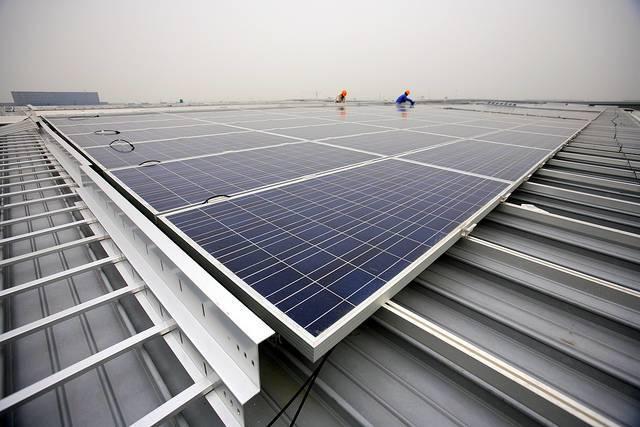
Watch for a war of words to erupt between U.S. President Donald Trump and “Jina” at any moment.
A major Chinese daily, the Global Times, lashed out at Trump on Thursday in the wake of the White House announcement that it would overturn many climate-related policies implemented under the former Barack Obama administration. While Trump insists these moves are necessary to save the U.S. coal-mining industry and its jobs, the Global Times’ editors attacked the policy shifts as a “retreat from action” on moving the world toward a low-carbon economy.
The newspaper, which often covers international news from the Chinese Communist Party’s perspective, has courted its share of controversy in the past. Its editors have taken an aggressive stance against anyone in the international community who has defended the work of artist and political activist Ai Weiwei. Last year, the paper dismissed Australia as a “paper cat” over a diplomatic row over access rights to the South China Sea.
When Secretary of State Rex Tillerson, then a nominee, suggested that U.S. ships deny China access to disputed islands in that region, the Global Times described that any such provocation would lead to a “large-scale war.”
But this same paper also took a conciliatory tone toward Japan after the 2011 earthquake and tsunami that damaged the Fukushima nuclear plant.
The paper’s editors reminded the Trump administration that China and the U.S. have worked on climate change cooperation since 2014, the result of which included both countries signing the 2015 international climate agreement during the COP21 talks in Paris. The article also argues that as the lone superpower in the world, the U.S. is in a unique position with its technological capabilities to reduce greenhouse gas emissions.
But the paper's editorial board followed that argument with a head-scratching comment that China is still developing, writing: “The task of industrialization has not been completed yet.” Considering China has become the world’s manufacturing center, and has struggled with pollution as a result, that assertion will come to the country’s critics as a cop-out. Of course, the country’s massive increase in carbon emissions and noxious air quality problems is the result of two decades of more manufacturing moving from industrialized nations to China.
China’s contribution to climate change notwithstanding, the paper described Trump’s executive orders on climate and energy as “political selfishness,” and insisted that Western opinion keep the pressure on Trump’s White House to not walk away from the 2015 global climate agreement. So far, however, the newspaper described the Western media’s ability to hold the Trump administration accountable as “somewhat feeble.”
China is hardly the only voice in the international community decrying Trump’s position on climate change. Yesterday, The Vatican urged the White House keep an open mind to the “dissenting voices” urging the U.S. to keep its global climate action promises. In an interview with Reuters, Cardinal Peter Turkson, often credited as the most ardent supporter of the 2015 encyclical letter touting the Vatican’s emphasis on environmental protection, said China’s investment in solar and wind power technologies could position the world’s most populous country as the global leader in clean energy development and leadership.
Trump’s dismissal of climate change as “hoax” perpetrated by the Chinese in order to sabotage the U.S. economy has long been documented. But the evidence suggests China is seeking to capitalize on climate science for its own economic gain regardless of other nations’ policies. According to several news reports, the country is on target to spend $360 billion on clean power generation by 2020, which will could create as many as 13 million jobs over the next several years.
Image credit: The Climate Group/Flickr

Leon Kaye has written for 3p since 2010 and become executive editor in 2018. His previous work includes writing for the Guardian as well as other online and print publications. In addition, he's worked in sales executive roles within technology and financial research companies, as well as for a public relations firm, for which he consulted with one of the globe’s leading sustainability initiatives. Currently living in Central California, he’s traveled to 70-plus countries and has lived and worked in South Korea, the United Arab Emirates and Uruguay.
Leon’s an alum of Fresno State, the University of Maryland, Baltimore County and the University of Southern California's Marshall Business School. He enjoys traveling abroad as well as exploring California’s Central Coast and the Sierra Nevadas.














